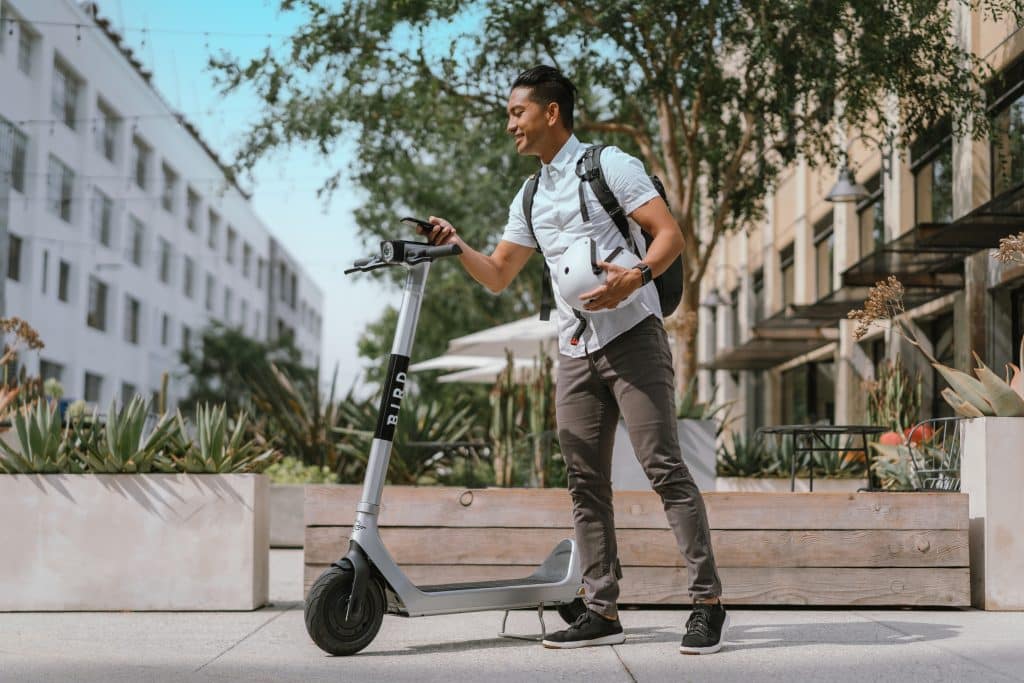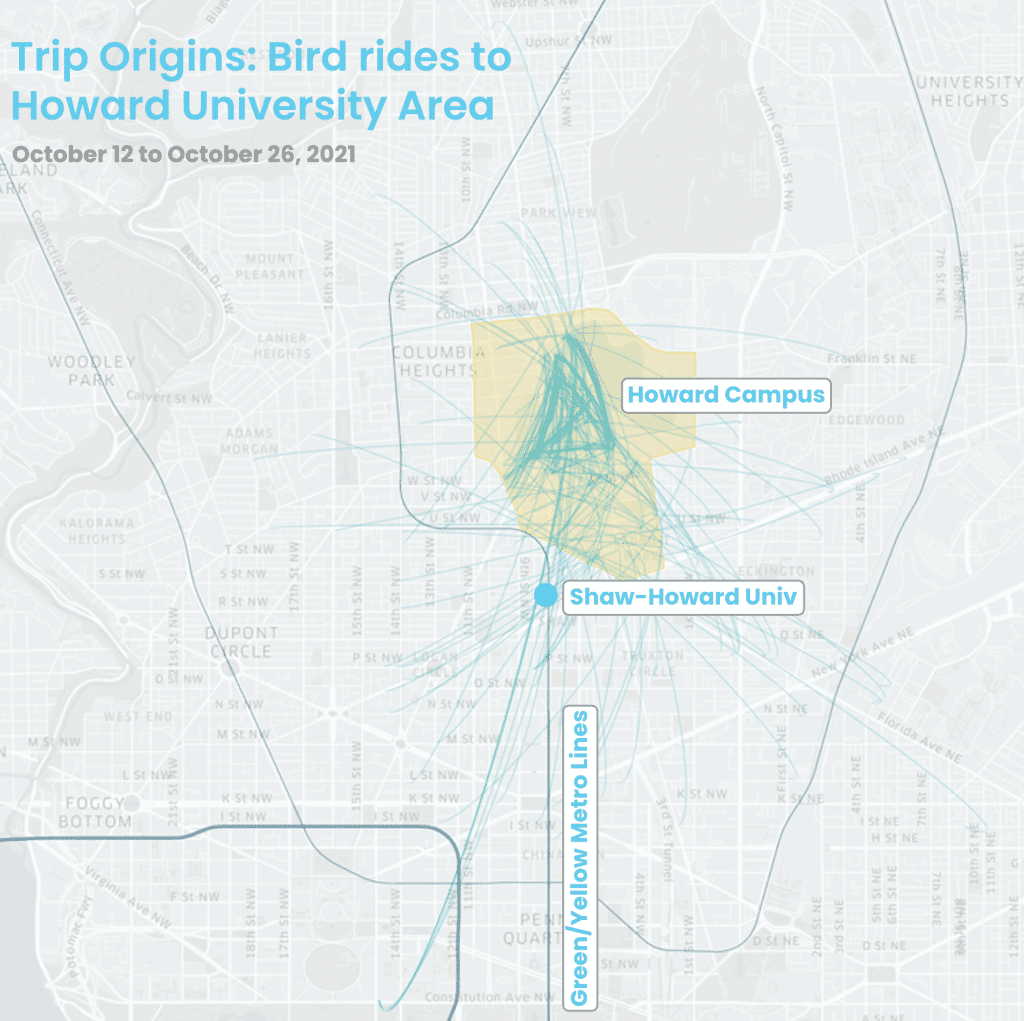Analyzing the Impact of Bird Scooter Support During DC’s Metro Outage

What do you do when one of the nation’s busiest rail transit systems experiences a months-long service disruption to nearly two-thirds of its railcar fleet?
This was the question facing many DC commuters in October, 2021. At the time, Washington Metro inspectors had just discovered axle issues with a recently derailed train and were forced to pull the majority of the fleet out of service as a precautionary measure. The disruption resulted in delays of up to 40 minutes for many riders.
Bird, an e-scooter operator serving the District since early 2018 as part of DDOT’s Dockless Vehicle program, quickly took action. In order to assist Metro commuters and help prevent dangerous traffic surges on local roadways, the company applied an automatic discount of 25% off to all DC riders. Bird also readjusted deployment strategies to prioritize areas along the metro corridor.
Quickly, the company noticed both an increase in ride length as well as the number of rides during peak commuting hours. In neighboring Arlington, VA, for example, average trip duration jumped 22% in just a week to 8.5 minutes.
CASE STUDY: 113% Ride Increase to Howard University
One of the most notable takeaways from this initiative was the growth in rides to and from key economic and business districts along Metro transit corridors. These include the U Street Corridor, Judiciary Square and, perhaps most interestingly, the Howard University campus.
Howard University is a bustling social, educational and economic hub, where 65% of employees hold jobs in healthcare or social assistance and thus cannot work from home. The area lies just off the Shaw-Howard metro stop along the green and yellow lines—lines that saw service reduced by 60% during the height of the outage.
In the wake of October’s disruptions, Bird rides increased by 113% to Howard University and its surrounding neighborhood. Most of these rides began in Wards 4 and 5, which aligns with the fact that more than 90% of Howard University area employees commute in from other neighborhoods. This is a relatively small but clear indication of the role e-scooters play in providing critical redundancies to transit networks to support essential workers.

TAKEAWAYS
The Metro outage in Washington, DC highlights the important supplemental relationship between public transit and micromobility.
Shared e-scooters and e-assist bikes extend the reach of buses, trams and trains by making it easier for riders to access stations. This is particularly true in areas with limited transit connections. Additionally, the availability of micro-EVs helps reduce reliance on personal cars and ridehail services, which reduces dangerous traffic congestion and pollution, during periods of transit disruptions.
As the Metro resumes usual service, Bird is continuing to provide service in Washington, DC, to those who need them most. The company’s Essential Worker discount program offers two free rides a day to those employed in an essential service, while the Bird Access program offers unlimited free rides to low-income individuals that are enrolled or eligible for government assistance programs.
Bird was a Gold Sponsor of Open Streets Georgia Avenue on October 2, 2021. Learn more at openstreets.dc.gov.